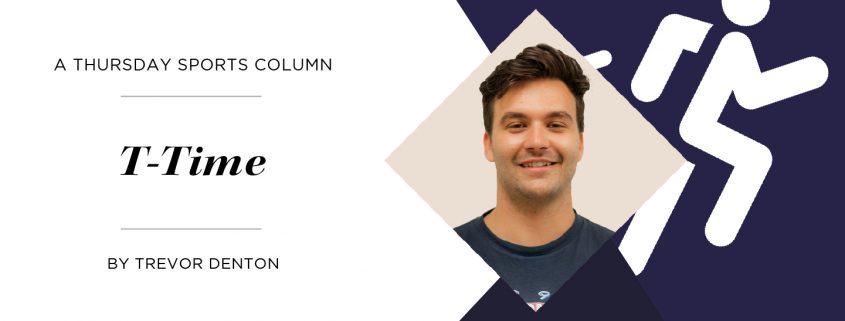T-Time: Burnout is a serious problem for coaches
Anger and frustration were the dominant sentiments expressed by college football coaches this week.
Michigan head coach Jim Harbaugh and Washington State head coach Mike Leach lashed out at reporters who questioned why they couldn’t vanquish their biggest rivals. Harbaugh is 0-5 against Ohio State during his tenure and said he won’t respond to insults when asked about his record.
Leach has lost his last seven matchups against Washington. He went as far as to tell a reporter to live his “little meager life” when asked if he was capable of overcoming recruiting deficiencies to beat the Huskies.
Even coaches who have no real reason to be frustrated were frustrated Saturday. After his team dispatched South Carolina to improve to 12-0, Clemson’s Dabo Swinney went on a tirade about how the Tigers get no respect from the College Football Playoff committee because of their perennially weak schedules playing in the ACC.
“They don’t want us in there anyway,” Swinney said. “We’d drop to 20 [with a loss], you know? Georgia loses to this very same team, and the very next day it’s, ‘How do we keep Georgia in it?’ We win to the team [North Carolina] that beat South Carolina and it’s, ‘How do we get Clemson out?’”
If the committee’s prerogative is to “get Clemson out,” it’s doing a mind-bogglingly terrible job of it. The Tigers have made the playoff in each of the past four seasons despite losing to unranked teams twice over that span. Swinney’s misplaced anger resembles the Simpsons grandpa-screaming-at-clouds meme.
It’s easy to write this off as typical chippiness during the final week of the season, when the struggle of a long year has turned into a downright slog.
But something else is happening here. Due to the new early signing period and increased pressure to win in the College Football Playoff era, coaches are getting burnt out more so than ever before.
There’s no better example of this than Chris Petersen’s resignation from Washington Monday. Petersen led the Huskies to the College Football Playoff in 2016 and 10 wins in three of the last four seasons. And yet, he felt the need to step away from it all.
“It becomes a lot of frustration and anxiety and stress,” said Petersen in the press conference announcing his departure. “Some of the excitement and positivity and optimism can kind of be pushed away. That’s never a way to live your life.”
Petersen’s 14 seasons as a Division I football coach certainly played a role in his burnout, but so did the increased pressure that comes with the job both on and off the field.
National Signing Day used to take place strictly in February, but a new early signing period was added for the 2017 college football season. While voted in by coaches who wanted more certainty over their recruiting classes entering spring practice, the measure has completely changed their calendars and placed incoming coaches at a severe disadvantage (they now have mere weeks to put together the core of their first class, as opposed to a few months).
This also means fewer opportunities for coaches to get breaks during and immediately after the season. Then, once the first signing period begins, the rush to add players in February starts.
North Dakota State athletic director Matt Larsen foresaw this being a problem for coaches back in 2017.
“These guys do it because they love it,” Larsen told the Grand Forks Herald. “But as an administrator, I worry about burnout with recruiting calendars. I have concerns with every sport. There are way too many recruiting days.”
There have been many discussions about mental health among student-athletes, but maybe it’s time to start looking after coaches, too. The job will always be a tiresome grind, but adding more mandatory dead recruiting periods or eliminating the early signing period could help prevent coaches like Petersen from burning out.
During a press conference this week, Swinney joked that adults, not first-graders, should get “nap time.” All coaches could use a little more rest.
Trevor Denton is a senior writing about sports. He is also a former sports editor for the Daily Trojan. His column, “T-Time,” ran every other Thursday.

